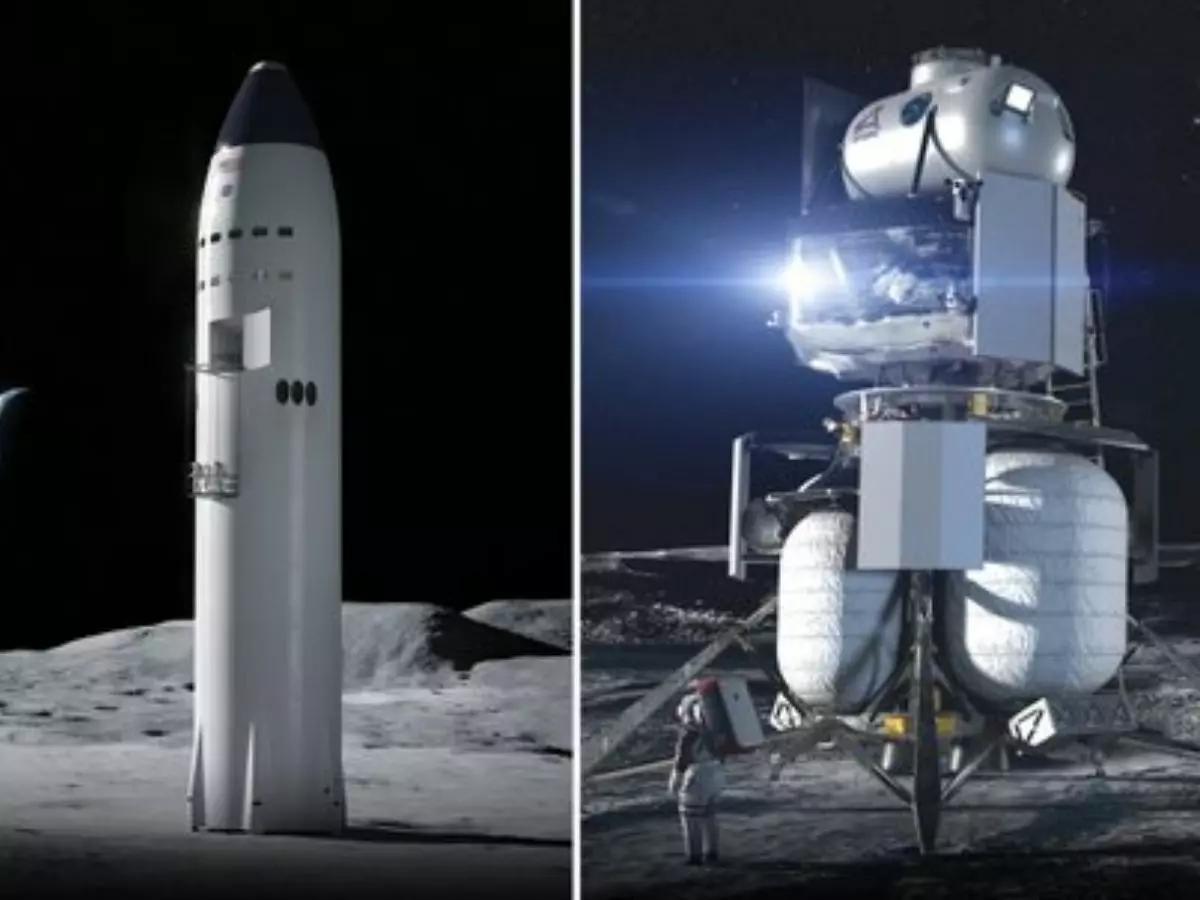NASA Artemis: Musk¡¯s SpaceX And Bezos¡¯s Blue Origin Compete To Take Humanity To The Moon
NASA has awarded contracts for a moon landing to Jeff Bezos¡¯s Blue Origin, Elon Musk¡¯s SpaceX and Dynetics

It¡¯s been a while since NASA has been teasing its Artemis moon missions, after suffering several delays. However, it has made a major announcement on private contracts.
NASA has revealed that it has awarded contracts for a moon landing to three major space upstarts -- Jeff Bezos¡¯s Blue Origin, Elon Musk¡¯s SpaceX and an IT firm Dynetics.
 NASA
NASA
Blue Origin
Blue Origin has been awarded $579 million -- the largest payout among the trio, primarily since it is at the most advanced stage, as opposed to the others. It is developing an Integrated Lander Vehicle (ILV) ¨C a three-stage lander which will be launched on its own New Glenn Rocket System and ULA Vulcan launch system.
SpaceX
Elon Musk¡¯s SpaceX is developing the Starship ¨C a fully integrated lander that will use the SpaceX Super Heavy rocket instead of the ULA Vulcan launch system used by the other two contenders. It has been awarded the least amount among the trio -- $135 million.
Dynetics
Dynetics (a Leidos company) from Huntsville, Alabama, is working on the Dynetics Human Landing System (DHLS) which is a single structure providing the ascent and descent capabilities that will launch on the ULA Vulcan launch system. It has been awarded $253 million for the project.
The companies now have to perform an initial demonstration mission. The better one among the trio will be picked and asked to create more advanced systems that will eventually help in the success of the Artemis mission. The contracts last until February 2021.
One company that is not on this list is surprise, surprise Boeing. While NASA hasn¡¯t publicly revealed the reason for not choosing the aviation giant for this mission, it looks like it decided to kick them out after the Starliner debacle in February this year. Reports also hinted that Boeing didn¡¯t conduct thorough tests on the spacecraft, which only made matters worse.
 Reuters/NASA
Reuters/NASA
However, whoever has been selected to the next step of development for Artemis, the pressure is inexplicable. Primarily since, Artemis has been only getting pushed further, which is disappointing the White House. It expects to see a crewed Moon landing by 2024. And the COVID-19 pandemic isn¡¯t really helping the case.
There isn¡¯t much time to design, build and test the lunar landing project, even for those with a headstart. It¡¯ll surely be interesting to see how they perform under this pressure.
